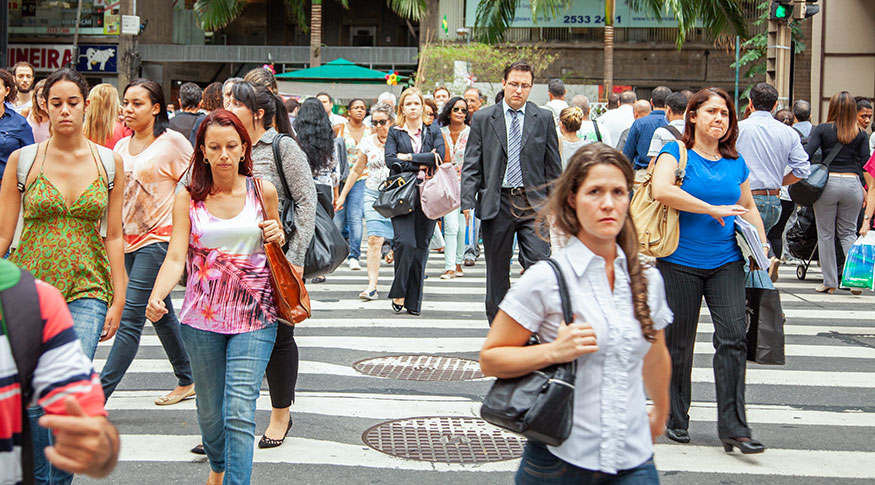Women's Month
Gender equality is one of the goals for a more sustainable world up to 2030
March 22, 2019 10h00 AM | Last Updated: March 22, 2019 10h00 AM

Achieve gender equality and empower all women and girls is one of the 17 Sustainable Development Goals (SDG), which comprise a set of targets to be fulfilled up to 2030 by the 193 countries of the United nations (UN). Despite being a specific goal in the world agenda, gender equality is a cross-cutting theme not restricted to women.
Goal 5, on gender equality, has 14 indicadotors, but there are another 40 with data disagreggated by sex in the other SDGs, showing that a sustainable world is necessarily related with gender issues. In Brazil, it is the IBGE that articulates the construction of those indicators and consolidates all of them in the Platform SDG Brazil, where the stages of the goals in the country are available.
The coordinator of Population and Social Indicators of the IBGE, Barbara Cobo, is responsible for SDG 5 in the institute and says that the data help to demystify the topic: "it looks like everything related to gender is simply a matter of opinion, with no basis at all. Equality refers to women reaching the level of freedom, rights, options, choice that men have and have always had throughout history."
The SDG indicators will be able to give international comparability to those issues, but there are reports that already allow some comparison, such as those produced by the World Economic Forum and the United Nations Development Program (UNDP). They show that the challenges faced in achieving gender equality are the same across the countries, although at different levels.
"Gender issues are not specific of Brazil. No country can actually boast that it has achieved full equality," said Ana Carolina Querino, program manager and UN interim representative for UN Women in Brazil.
For such problems shared by the countries, Barbara indicates some measures that can benefit everyone, like same-length licensing for parents: “when offering a managing position to a woman or a man, no one will think that the she can get pregnant and stay a long time out, for the man can also become a father and have the same leave”.
Among the poorest people, Barbara says there is a predominant profile of women without a spouse and with a child, whose father is usually not present. In those cases, she reaffirms the importance of investing in full-time schools, which allow women in such conditions to to have a full time job. "The individual has only one possibility of income. If the woman has to stay at home taking care of the child, she will end up depending, for example, on the state to get some kind of welfare benefit. "
"[Gender equality] is good for everyone because everyone grows. Why do you want the other person not to have the same capacity and opportunity of choosing that you do?" Barbara asks.



















